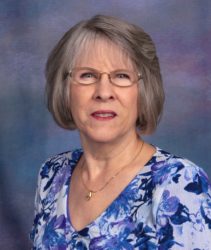Main Session: Jan Holden, EdD
After-Death Communication and the Biblical Fruits of the Spirit: An Online Survey
Abstract
In after-death communication (ADC), a living individual experiences direct contact with a deceased entity. Although research has shown such experiences to be common and overwhelmingly beneficial, clients in counseling—particularly conservative Christian clients—have expressed reluctance, distress, rejection, and/or avoidance of such experiences, considering them evil or “of the Devil.” Although the Bible cites necromancy—conjuring the spirits—to be “not of the Spirit,” the same passage goes on to provide a litmus test for determining Holy Spirit as the source of phenomena: whether they yield the fruits of love, joy, peace, patience, kindness, goodness, faithfulness, and self-control. My research team conducted an Internet survey of ADC experiencers. Participants were 164 adults ranging from 21 to 86 years of age, with a mean age of 57.7; 85.4% female, 14.0% male, and 0.06% genderqueer/non-binary; 93.3% White, 0.6% African American/Black, 1.2% Asian, and 4.9% multiracial/other; and 92.7% representing disproportionately every US geographic region, and 7.3% living outside the US. With their only or self-identified most impactful ADC in mind, they indicated the extent to which the ADC changed their sense of each of the fruits, with opportunity to provide narrative explanation of any changes. Results revealed answers skewed strongly in the direction of increasing their sense of the fruits, with only 0.4% of responses indicating any lasting decrease of a fruit. We discuss limitations, including a religiously/spiritually liberal-leaning sample; criteria for concluding whether the results indicate that ADC is “of the Holy Spirit;” suggestions for future research that our results seem strongly to warrant; and implications for counselors working with clients who report ADC and for religious scholars considering the spiritual source of ADC.
Presenter Bio

Since completing her EdD in 1988, Janice Miner Holden has been a member of the University of North Texas Counseling Program faculty where she is currently professor of Counseling and chair of the Department of Counseling and Higher Education. Beginning with her doctoral dissertation, Jan’s primary research focus has been the counseling implications of near-death experiences, after-death communication, and other transpersonal experiences—those that transcend the usual personal limits of space, time, and/or identity. In this research area, she has published over 35 refereed journal articles, and over 100 national and international presentations. She served as lead editor of the 2009 Handbook of Near-Death Experiences: Thirty Years of Investigation, and she co-edited the Association for Spiritual, Ethical, and Religious Values in Counseling’s (ASERVIC’s) 2017 ‘Connecting Soul, Spirit, Mind, and Body: A Collection of Spiritual and Religious Perspectives and Practices in Counseling.’ She is a Texas LPC-Supervisor, a National Certified Counselor, and an American Center for the Integration of Spiritually Transformative Experiences (ACISTE) Certified Mental Health Professional. For her career-long research on and advocacy for people who have had transpersonal experiences, Jan was awarded the ASERVIC 2013 Research Award and the American Counseling Association’s 2015 Gilbert and Kathleen Wrenn Award for a Humanitarian and Caring Person.